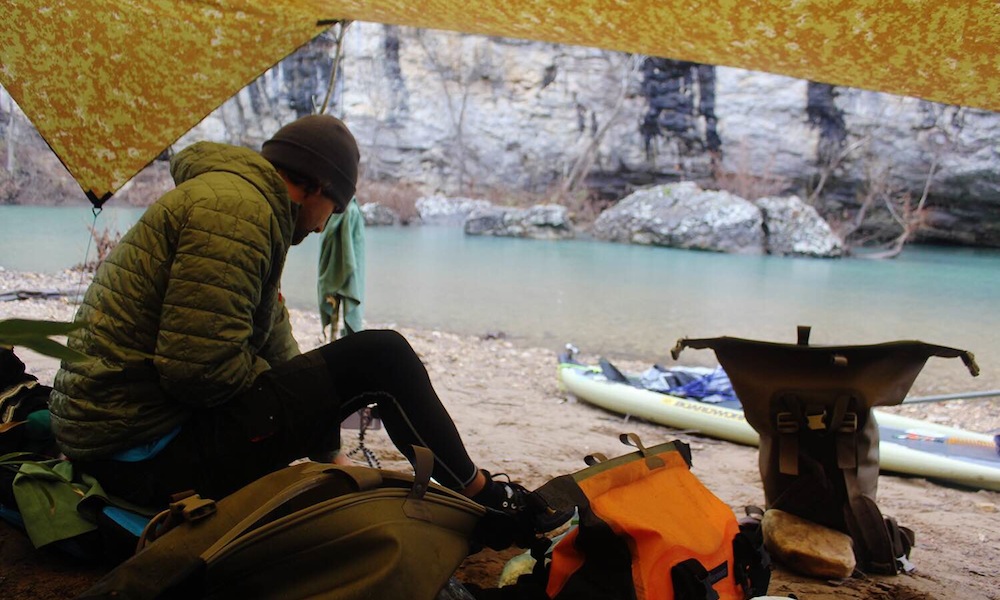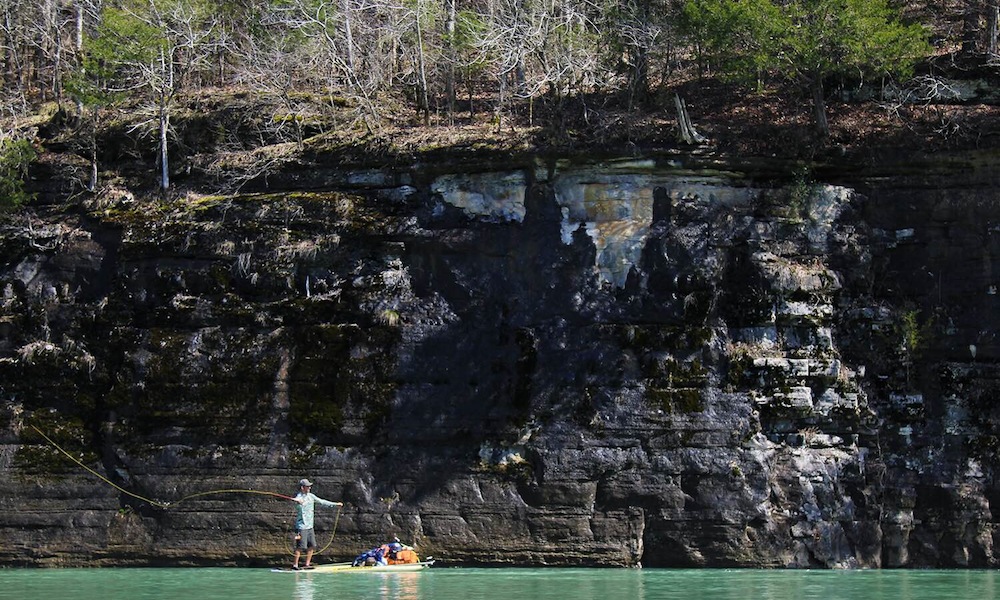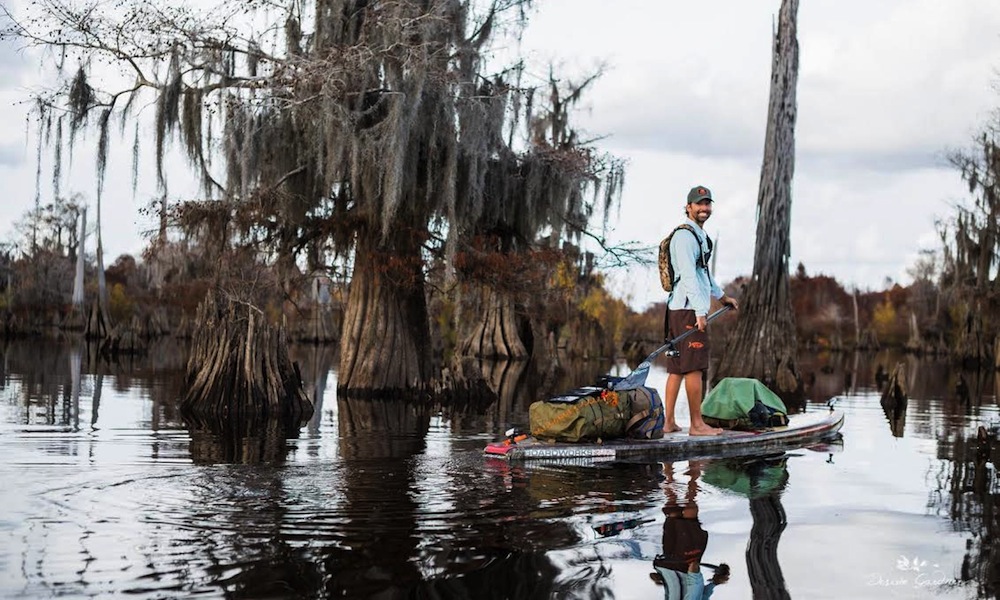What To Avoid On A SUP Expedition
- Written by Staff
- Published in Tips
- Comments::DISQUS_COMMENTS

Adventure is one of the perks of stand up paddling (SUP) and is one of the many reasons why it keeps drawing in new paddlers and what keeps us all coming back for more with every stroke. Adventure paddling, expeditions, journeys, or whatever you wish to call it is one avenue in SUP that is always exciting and fun. But, it’s not always as easy and fun as it looks. Things can and likely will go wrong at some point and no-one knows this better than some of SUP’s most experienced adventure paddlers Bart de Zwart and Gabriel Gray.
Bart who is a Starboard athlete and Gabriel who is a Boardworks athlete, have planned and adventured on numerous expeditions around the globe and have seen and encountered the good, bad, and the ugly! In order to avoid these same unfortunate experiences, we caught up with these two to get some tips on what to avoid when on a SUP expedition of your own. Check it out:
1. Plan, Plan, Plan
 |
 |
Camp setups: Bart (left) Gabriel (right) | Photos: Franz Orsi / Jackson Berger
Plan for the worst. Plan for the best. Plan for every possible scenario you can think of because being out in the wilderness all alone can set you up for some serious scenarios. “Do your research before you go,” says Gabriel. “Make sure you can navigate without using an electronic device! Know how to use a compass and map.”
“Not taking the planning part seriously is one of the biggest mistakes you can make,” says Bart. He continues, “For an expedition, planning is everything. Thinking through what food you need, weather planning, exit strategies / back up planning, what gear you need and what back up and repair gear you need is all very important. Because on most expeditions, you will be on your own (even if you do it in group), so you want to plan, think, and look ahead.”
2. Don’t Overpack
 Bart de Zwart during his expedition on the Muskoka River. | Photo: Andy Zeltkalns
Bart de Zwart during his expedition on the Muskoka River. | Photo: Andy Zeltkalns
When planning your trip you want to make sure you have all of the necessary gear but there’s a fine line to be crossed and you can easily overdo it. Be sure to think of ways to cut down on what you bring and only bring the necessities. “Overpacking adds a lot of unnecessary weight which leads to harder paddling, harder portaging and if not loaded correctly can make you top heavy which leads to capsizing,” notes Gabriel.
A great way to test out if you have too much gear to begin with is to do a trial run and pack up all the gear you want to take on your board. This can help you eliminate any unnecessary items quickly by giving you a visual of what you can actually fit on your board.
3. Don’t Under-Pack
Under-packing for your trip can also lead you down a dangerous path. You never want to put yourself in the position of running out of food, water, or dry clothes. “Back up is key,” states Bart. “Without water you won’t last long, without food you won’t be strong and without warm and dry clothes you won’t last long either. So bring back up, more than you think than you need is the safest way to go.”
4. Test Your Gear
 |
 |
Pictured: Gabriel (left) Bart (right) with their gear. | Photos: Jackson Berger / Bart de Zwart
On the point that things can and will go wrong, one way to minimize the chance of that happening is to test your gear before your trip. Test your boards, paddles, cooking ware, water filters, lighters, you name it, before departing on your trip.
Bart says:
“On an expedition most paddlers will take gear that isn’t normally used on day-to-day paddles. So, try out your new stove or your new satellite tracker before you are on your way. Try everything out. For example, Before I went on my 5-day, non-stop crossing, I did night downwinders and tried out how to blow up my bed on my board in the night. If you try out everything, you will be surprised how many small adjustments you will make before you go on your expedition.”
5. Don’t Bite Off More Than You Can Chew
Let’s face it, no one likes to admit defeat or weakness. When planning your trip don’t let your ego get the best of you. “Yes, you may be an avid paddler and backpacker, but combining the two has a big learning curve and a lot of trial and error,” states Gabriel. Gabriel also advises to “start small, maybe a two-nighter on an easy body of water you are knowledgeable about…basically, don't go on a 10 day trip down a river you haven't done your research on.”
6. Don’t Overlook the Weather
 Bart de Zwart paddling from Tahiti to Bora Bora | Photo: Tim Mc Kenna
Bart de Zwart paddling from Tahiti to Bora Bora | Photo: Tim Mc Kenna
Paddling in good weather can and usually is crucial to your success during your expedition. Don’t overlook it! Failure to follow weather patterns before and during your trip can be a costly and trip-ending mistake.
“Not knowing your surroundings all stems back to your knowledge and research,” says Gabriel. “Make sure to know the weather for the time of year that you will be paddling as well as the floral and fauna around you.”
Bart adds, “When I went to Northern Canada and Greenland and wanted to cross between them, I studied the weather for months, just to see the patterns and how it behaves. At first I saw the station measurements at the coast which were very pleasant but later after studying the whole weather pattern, I realized that at sea, it was not pleasant at all and I changed all my plans because of this. It’s important to know the risks and make educated decisions based on those risks. The coolest and most spectacular expedition is never worth risking your life for.”
7. Avoid Relying On Others

Relying on others can be a huge mistake, especially when you’re in a crucial time of need. You never want to put yourself in the position of being in need of something and not having it because someone was supposed to meet you and didn’t show, or needing to be rescued but not properly preparing for the time it will take for a rescue team to reach you.
“Plan to rely on yourself and think of scenarios when things can go wrong and which options and exit strategies you have” states Bart. He continues, “When I crossed the North Sea from England to Holland, I thought all wind scenarios through and places I could paddle to if the winds were not working in my favor even if it would mean going to another country.”
So, key point here is to rely on yourself and make sure you have all of your bases covered.
8. Don’t Be A Slob
One of the great things about getting out on an adventure is getting to explore and experience the beauty that surrounds you. Don’t spoil the experience for others by not cleaning up after yourself. “Treat the outdoors like you are visiting someone's home, because you truly are if you stop and think about it,” says Gabriel. He continues, “Clean up your trash, dig a cat hole for your human waste, pick up others mess if need be. Pretty much leave it better than you found it. When you leave a camp spot you would never know anyone camped there.”
 |
 |
Gabriel Gray on his expedition down the Apalachicola River. | Photos: Desiree Gardner
9. Don’t Leave Your Belongings Out
You may think you’re alone out there in the wild but in reality you’re likely surrounded by many of the furry locals that frequent your camping spot for the night. Gabriel explains, “Don't go all dr. Dolittle or crocodile hunter while in the woods. Pack all your food and toiletries into a bag and hang them every night. Animals have the same curiosity and senses as we do but multiplied by 1,000!”
10. Don’t Be An Arsonist
When you think camping, naturally you think campfire. But sometimes if you don’t know what you’re doing, you can cause big problems. “Everyone loves a campfire,” says Gabriel, “but you definitely don't want to be known as the guy that started a huge wildfire! It's not always necessary to have a fire, know your regulations and drought conditions. RESEARCH and KNOW YOUR SURROUNDINGS!

We all make mistakes but hopefully this list from two of the best SUP adventurers can help you to avoid making at least a few of them! If you’ve got any helpful hints, please share your thoughts in the comments below!
© Supconnect.com Copyrighted Exclusive Content
Related Articles

Staff
Submit your news, events, and all SUP info, so we can keep promoting and driving the great lifestyle of stand up paddling, building its community, and introducing people to healthier living.
Website: supconnect.com Email This email address is being protected from spambots. You need JavaScript enabled to view it.




